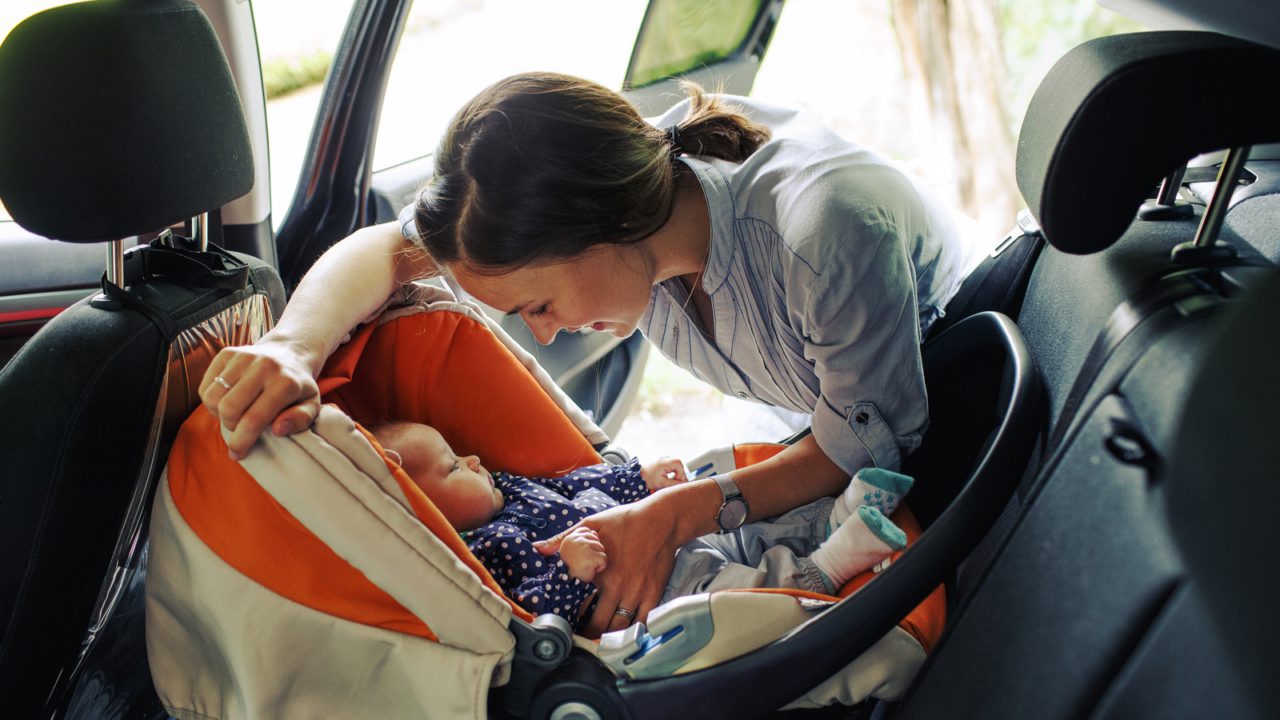Travel can be exhausting and stressful on the best of days, but packing up your young children and hitting the road amps up the difficulty level to “expert.” Here are some tips for making sure your trip goes as smoothly as possible:
- Pack some favorite music, toys, and snacks to help your little one enjoy the trip as much as possible. If you can, choose toys or activities that are ones your child hasn’t seen or played with recently. He will be more interested in exploring toys that are “new” and different.
- Bring along a few books. You can pull them out of your bag to capture baby’s attention when she gets fussy. You can also share photos to help pass the time. Your baby will be interested in baby photos of family members, pets, or places in or around your home (park, grocery store, bedroom). Talk about each picture and describe what you see.
- For toddlers 18 months and older, bring child-safe, washable crayons or markers and paper for drawing.
- For car rides, try singing familiar songs with your little one (such as “Wheels on the Bus” and other favorites). Pack a shaker or bells that your child can shake along with the music. Bring some soap bubbles and blow bubbles into the back seat when your little one starts to get cranky.
- Allow extra time for traveling with a young child. Plan for stretch breaks and give your child a chance to run around between parts of your trip. If you are traveling with another adult, decide who’s on “child duty” and who’s lugging the suitcases.
Once you’ve arrived, your child may need help adjusting to a large group of unfamiliar family members and new routines. Here are some ways to make transitions to new people and places easier:
- Bring crib sheets or other bedding from home so everything smells familiar. Pack the monitor and any other baby gear that will allow you to keep to your children’s typical schedule as much as possible.
- Bring a few favorite toys and books and use them to help baby get to know and feel comfortable with “new” relatives and family friends. If your Aunt Jane gets down on the baby’s level to play with a familiar toy, your child may be eager to join the fun.
- Honor your baby’s temperament and boundaries. Avoid asking (or expecting) a slow-to-warm-up baby to go to every family member for a cuddle. You can reassure the grown-ups by saying, “I’m sure she’ll be ready to visit in a little bit.”
- Think again about making children give relatives or visitors a hug. Just like adults, children can have opinions about who they want to hug (or not hug). Teaching toddlers to say “Hello” or for preschoolers, “Hello, it’s nice to meet you” is a good lesson in being respectful and courteous. But hugs aren’t necessary and forcing them to hug when they don’t want to can teach children that they should ignore their preferences about touch.
- Be ready for young children to need more soothing than usual. Your baby may have more difficulty calming down or falling and staying asleep in a new place. Be prepared for potty accidents, too. New routines, less sleep, new foods, and new surroundings will do that!
- If you pass through a time zone or two, expect the baby to wake, sleep, and get hungry based on your home time zone rather than what the clock shows in the place you’re visiting.
Most of all, remember that despite any challenges that arise, feeling part of a loving extended family is an incredible gift to give a young child. Take lots of pictures and videos, and enjoy this time together. These are the memories of a lifetime for your little one.







